MercoPress. South Atlantic News Agency
Tag: European Central Bank
-
Friday, July 28th 2023 - 09:51 UTC
Euro zone raises benchmark interest rate to 4,25% for the ninth time running
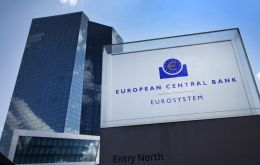
The European Central Bank on Thursday increased the key interest rate in the Eurozone by 0.25 percentage points to 4.25%. The decision to hike rates for a ninth straight time is part of the ongoing campaign to bring down inflation, but as inflation pressures show tentative signs of easing, recession worries mount.
-
Monday, March 27th 2023 - 10:20 UTC
German Chancellor says “no reason to be concerned about Deutsche Bank”, system is stable and resilient

German Chancellor Olaf Scholz said during an EU summit last Friday in Brussels that Europe's banking system is “stable” and “ solid”. The leaders of the Eurozone countries met with the head of the European Central Bank, ECB, Christine Lagarde, to discuss the potential fallsou of several major banks collapsing in the US and Switzerland.
-
Monday, March 20th 2023 - 16:05 UTC
Network of leading Western central banks ready to inject the necessary dollars liquidity

Leading central banks of the West announced on Sunday a coordinated action to provide liquidity to the financial system through the US swap liquidity line arrangements. The statement was signed by Secretary of the Treasury Janet L. Yellen and Federal Reserve Board Chair Jerome H. Powell and becomes effective Monday 20 March.
-
Friday, February 3rd 2023 - 10:20 UTC
Aggressive ECB takes basic rate to 2,5%, anticipates another increase in March

The European Central Bank increased its basic interest rate 50 basis point to 2,5% and anticipated it intended to hike by another 50 basis points in March. The move follows four hikes in 2022 which brought euro zone rates out of negative territory for the first time since 2014.
-
Saturday, September 18th 2021 - 08:55 UTC
EU Parliament wants an end to ECB meetings with private sector behind closed doors
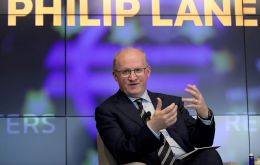
The European Central Bank is facing strong demands to finish meetings behind closed doors with the private sector, following on disclosure that chief economist Philip Lane allegedly anticipated an inflation forecast, not yet published, in one of such events.
-
Friday, March 12th 2021 - 17:58 UTC
ECB keeps interest rates at historic low and pledges to step up bond buying
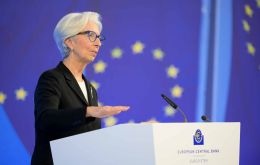
The European Central Bank (ECB) on Thursday kept interest rates at historic lows and said it was stepping up its bond-buying stimulus in the coming months. The steps are aimed at halting what is regarded as a premature rise in borrowing costs in the 19 countries that use the Euro currency.
-
Tuesday, January 26th 2021 - 09:24 UTC
“Journey of recovery” in 2021 will be accompanied by a high level of uncertainty, Christine Lagarde
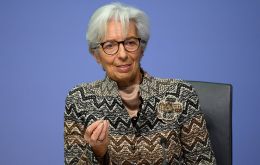
Christine Lagarde, president of the European Central Bank (ECB), said on Monday that the “journey to recovery” in 2021 would most likely be accompanied by a “very high level of uncertainty” before a transition to a “new economy.”
-
Tuesday, May 19th 2020 - 08:03 UTC
France and Germany confirm alliance and propose 500 bn Euro recovery fund for Europe

France and Germany proposed on Monday a 500-billion-euro (US$545-billion) fund to finance the recovery of the European Union's economy from the devastation wrought by the coronavirus crisis.
-
Wednesday, February 12th 2020 - 07:43 UTC
World's largest oil traders investing in climate friendly projects, but profits remain a big question mark
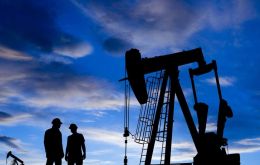
The world's largest oil traders are pouring hundreds of millions of dollars into climate-friendly projects: including wind farms, cow manure plants, and blue hydrogen: as they seek to match the profits they make from trading oil.
-
Thursday, October 31st 2019 - 08:51 UTC
New ECB chief calls on budget surplus countries to spend more and help prop growth

Incoming European Central Bank chief Christine Lagarde on Wednesday took aim at Germany and other thrifty Eurozone members running budgetary surpluses, saying they should increase their spending to shore up slowing growth.
